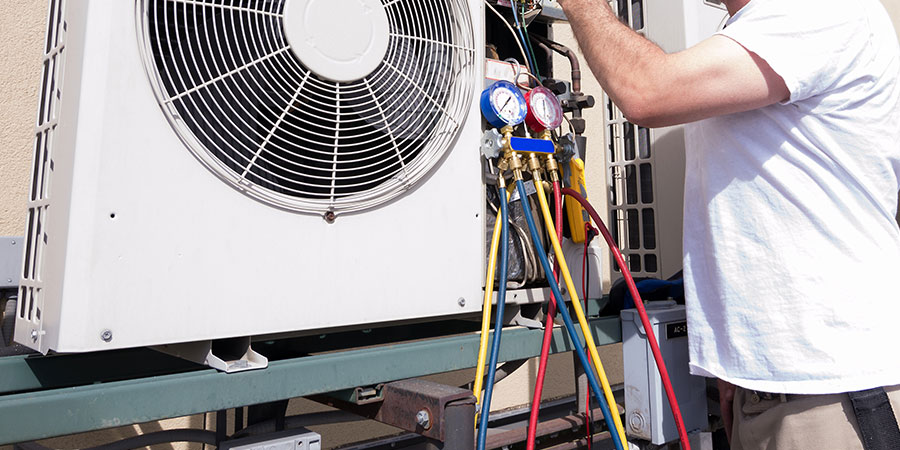Winter is coming, so you must heat your house, keep an eye on your heating costs, and be ready to forgo comfort to save money.
In addition to thermal comfort, you must be mindful of indoor air quality throughout the season.
One of the major concerns with people during winter is the amount of money they spend on heating.
You don’t want to spend all your money on home heating, do you? To ensure this doesn’t happen, you need to be cautious and properly prepare your home. Some of the things you need to do include:
Ensure that your heating system is up to the task.
You need to ensure that your heating system is in good working condition. When was the last time you cleaned or inspected your furnace? If you can’t remember, it might be time to do it.
You can do the work yourself or hire a professional furnace service expert to help you.
If you have had your system for a long time, you should consider replacing it. When upgrading your system, do your research and consider all options available.
Consider propane-powered furnaces, which last 50% longer than electric heat pumps and have a cheaper overall cost of ownership.
Propane furnaces also emit 50% fewer greenhouse gas emissions than electric furnaces and 12% less fuel oil furnaces, giving warmer air than other heat sources (115-125 F).
Check the radiators
It is also wise to get your radiators checked while servicing your heating system. Bleeding your radiators regularly will improve their performance and save you money on heating.
Automatic radiator bleeding valves can also save time and increase radiator performance.
Also, vacuum your radiators to remove cobwebs, dust, and other debris.
Remember that clean radiators imply better heat transfer and decreased energy consumption.
You can do the cleaning yourself or hire a professional to help you.
Radiator reflectors and booster fans might help you raise your radiator game. Remember that radiators do not give out all of their heat.
They are a misnomer; they “convert” the majority of their heat, i.e., they heat the air around them, which then heats you.
Using radiator booster fans allows them to distribute heat to you more efficiently and quickly.
A radiator reflector panel on the wall behind the radiator helps distribute heat into the room and provides greater heating for the same amount of energy.
Get your hot water tank something warms this winter while you’re thinking about radiators.
If your hot water tank lacks adequate insulation, try purchasing a cylinder jacket to supplement the insulation.
Check your ventilation
Check the ventilation fans in your bathrooms and the kitchen range hood. Check that they are operational and service them in accordance with the manufacturer’s instructions.
You need them to be at their best to avoid moisture buildup within homes. Clean up the vents in your walls and trickle vents on windows to guarantee proper ventilation.
It is difficult to keep windows open for ventilation throughout the winter, yet well-ventilated living areas are essential.
One option is to open the windows once or twice an hour and use a fan to push the air, quickly airing your living room or bedroom in minutes.
Carbon monoxide leaks are more likely in the winter because of increased heating appliance use and decreased ventilation.
You should replace the batteries in your smoke and carbon monoxide detectors and test them.
Be smart
Consider a smart home energy monitor if you want to closely check your electricity usage and alter your usage patterns and timings accordingly.
Knowing which appliances account for the majority of your energy consumption might help you better plan your usage and conserve energy.
As a rule of thumb, you should install a smart thermostat.
As a rule of thumb, install the thermostat at the right temperature. The ideal temperature settings for your house are entirely personal to you. Some people get cold while others get hot, so finding a decent balance can be difficult if you share a home with others.
According to British Gas, the ideal room temperature should be between 18 and 20 degrees. Stick to these heating recommendations, and if you have rooms that struggle to retain heat, close doors and windows and invest in a draught excluder.
Setting up your smart thermostat in the wrong location is a common blunder. The location of your smart thermostat is critical because it affects how your thermostat measures and adjusts the temperature of your rooms.
Installing a smart thermostat in a room that is too hot or cold, or too close to heat or cold-generating appliances, for example, is a no-no.
Insulate your house
Adding insulation to the attic and walls is critical to enhancing comfort and energy efficiency in the long run.
Retrofitting your older windows will also be beneficial.
If your attic or crawlspace isn’t adequately insulated, your heating system will have to work harder to maintain a consistent, comfortable temperature in your home.
The more you use it, the more it costs you. If you live in a colder climate, add extra insulation to your garage door; it can greatly impact you.
You can also DIY draft-proofing around doors and windows with draft excluders and weather stripping, which is ideal for preventing chilly outside air from significantly cooling your home.
The most common heating mistake is not utilizing a programmable thermostat in their home, which makes heating less efficient as they try to heat rooms that don’t require it – or allow their rooms to become excessively cold.
Parting shot
These are some of the ways you can prepare your home so that you don’t spend an arm and leg on home heating.
As mentioned, you should work with heating service repair Port jefferson professionals to inspect the unit and fix any issues that might be present.

